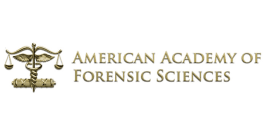The B.S. in Forensic Chemistry combines elements of criminal justice with a strong chemistry program. The forensic chemist analyzes and interprets materials collected at crime scenes, accidents, and at sites of terrorist activities.
The degree is offered in response to strong student, state and local government demand for an undergraduate academic program to prepare students for careers in forensic chemistry. According to the U.S. Department of Labor Bureau of Labor Statistics 2010 Occupational Outlook Handbook, forensic science technicians will grow much faster than average.
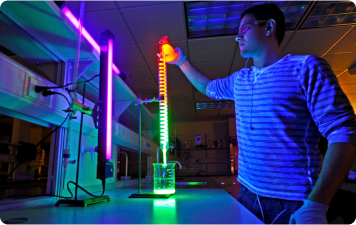
Graduates with a bachelor of science in forensic chemistry work in forensic laboratories for federal, state, or local government agencies or in some cases, work for private investigative laboratories. Some graduates may also go on to pursue a graduate degree.
The LSSU chemistry program has been approved by the American Chemical Society, and may provide a certified degrees in Chemistry if a student chooses this track. Graduates completing the prescribed requirements are awarded an ACS certificate signifying their completion of the approved degree and can qualify for membership in the Society upon graduation.
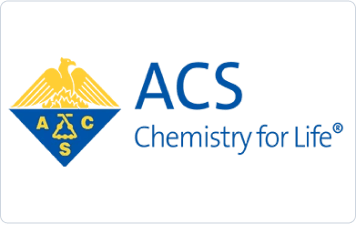
This feature provides researchers with a powerful tool that reveals whether certain genes are activated, in this case in a bacteria culture. This project is part of an introductory biochemistry laboratory class that all chemistry majors and many biology majors take while at LSSU. Students learn modern biochemical and molecular biology techniques that can be applied in research and medical careers. Borseth is a junior pre-med student from Ontonagon, Mich., studying biology with a minor in chemistry.
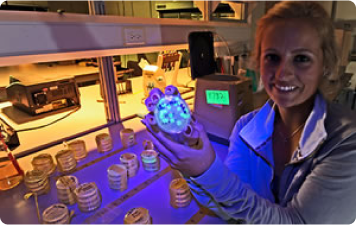
Biochemistry student Halley Borseth holds bacteria colonies that have been engineered to produce a protein normally found in jellyfish that glows a fluorescent green under black light.
Access to Faculty: The LSSU porensic chemistry Program boasts a low student to faculty ratio. Class size in the capstone course, forensic chemistry, is limited to 24 students. In addition, the course is team taught by faculty with varying areas of specialization.
Access to Instrumentation: The field of forensic chemistry exists at the interface of chemistry, biochemistry and instrumental analysis. Thus, it is imperative that graduates have a strong foundation in the operation of instrumentation. At Lake Superior State University, students are not merely introduced to, but regularly operate instruments such as Q-PCR thermocyclers, ICP-MS, NMR, HPLC, GC-MS and FTIR spectrometers.
Research: Students in the Forensic chemistry program have the opportunity to perform a senior research project under the guidance of a faculty member. Projects are related to the student’s area of focus and culminate in a poster and oral presentation at our University Research Symposium. Students have also presented their work at national conferences and been published in peer reviewed journals.
Internships: Internships are a great opportunity for students to gain experience with methodology, operate instrumentation and acquire job specific skills in your field of study. On campus internships are available during both the academic year and summer in faculty research projects, the Chemical preparation laboratory and the Superior Analytics Laboratory.
Placement: The Forensic Chemistry Program at LSSU has been successful in maintaining a high placement in summer internships, jobs upon graduation, and seats in graduate and professional schools. For more information see student success stories under the student profile section.
Accreditation: The Chemistry Department at LSSU is approved by the American Chemical Society. As an ACS-approved program, LSSU is charged with holding and maintaining modern instrumentation, offering a rigorous and coherent program, and employing accomplished faculty which will attract top talent entering college.
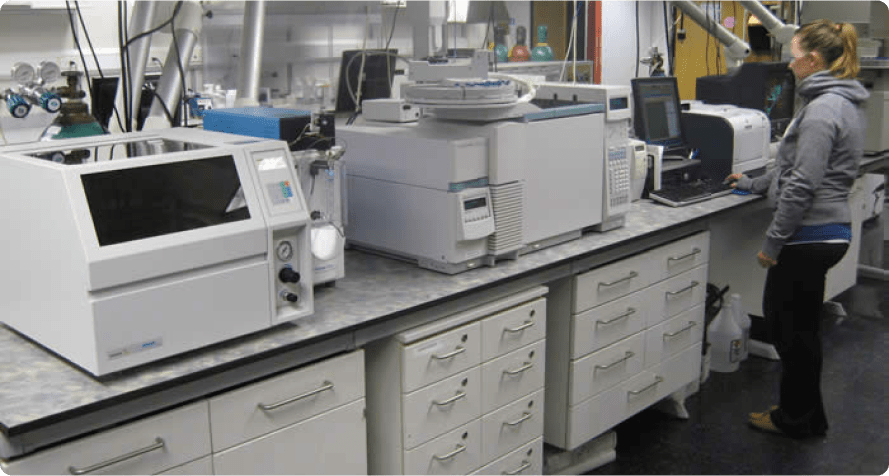
The Departments of Chemistry & Environmental Science maintain a full compliment of modern chemical instruments. Our undergraduate students and faculty use these instruments both in their laboratory experiences and to support their research.
We would enjoy the opportunity to discuss careers in the chemical sciences with you. During a campus visit, be sure to ask to speak with the Environmental Chemistry Department. We would like to show you our excellent facilities and take the time to discuss some of the exciting research projects now underway.
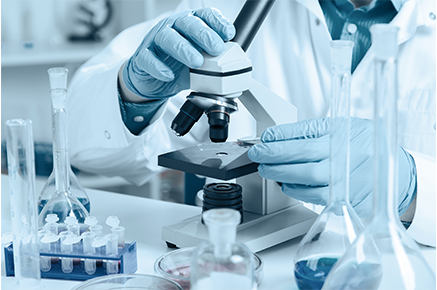
Annual Starting Salaries for Forensic Chemists
(Bureau of Labor statistics)
Placement Rate for Graduates
Entering the Workforce

